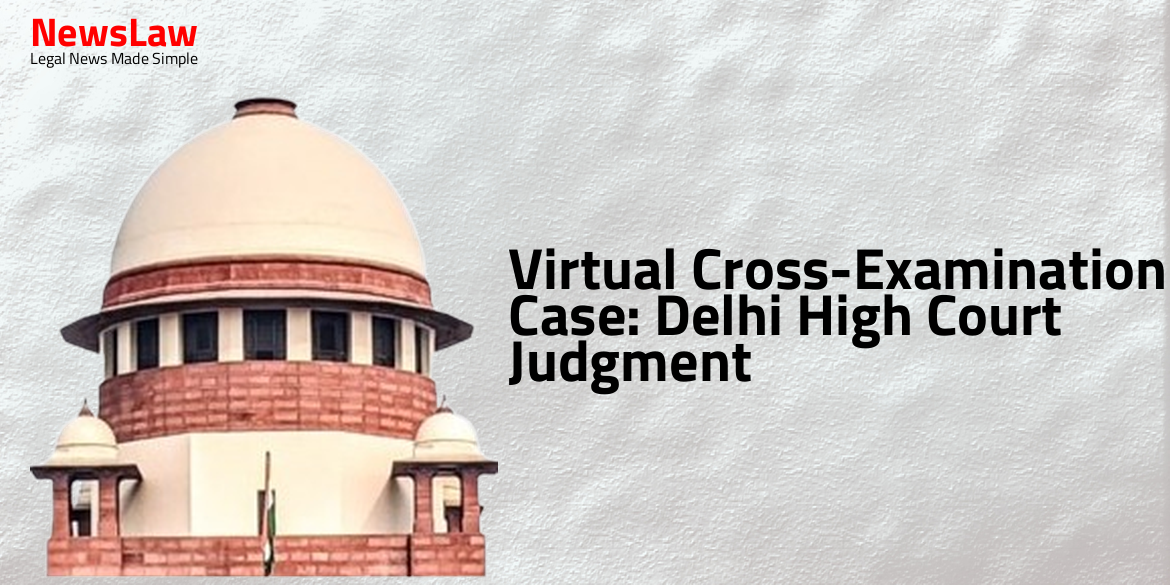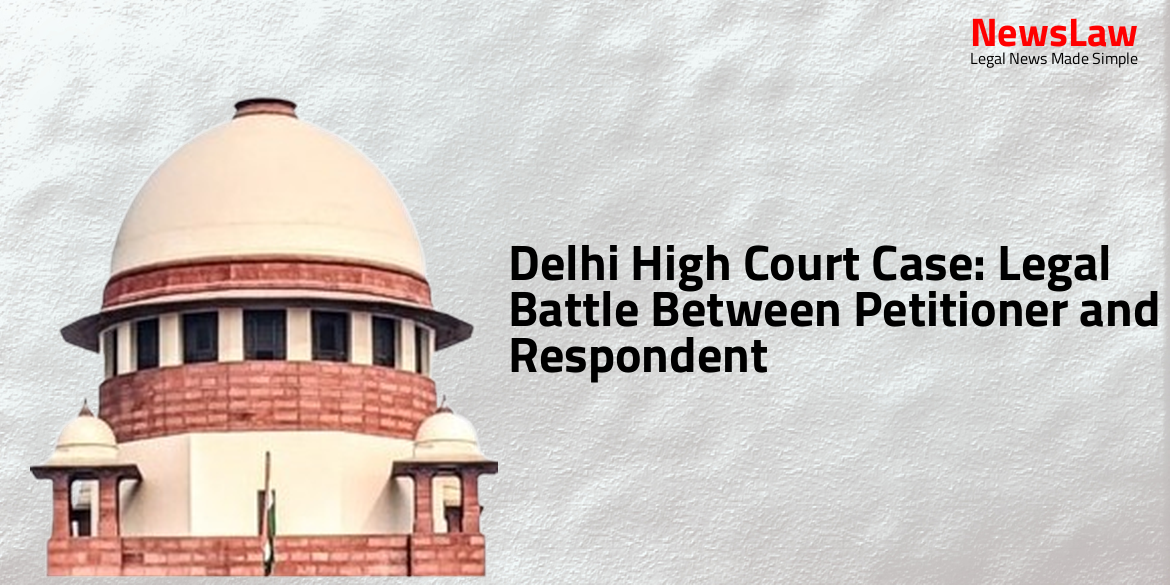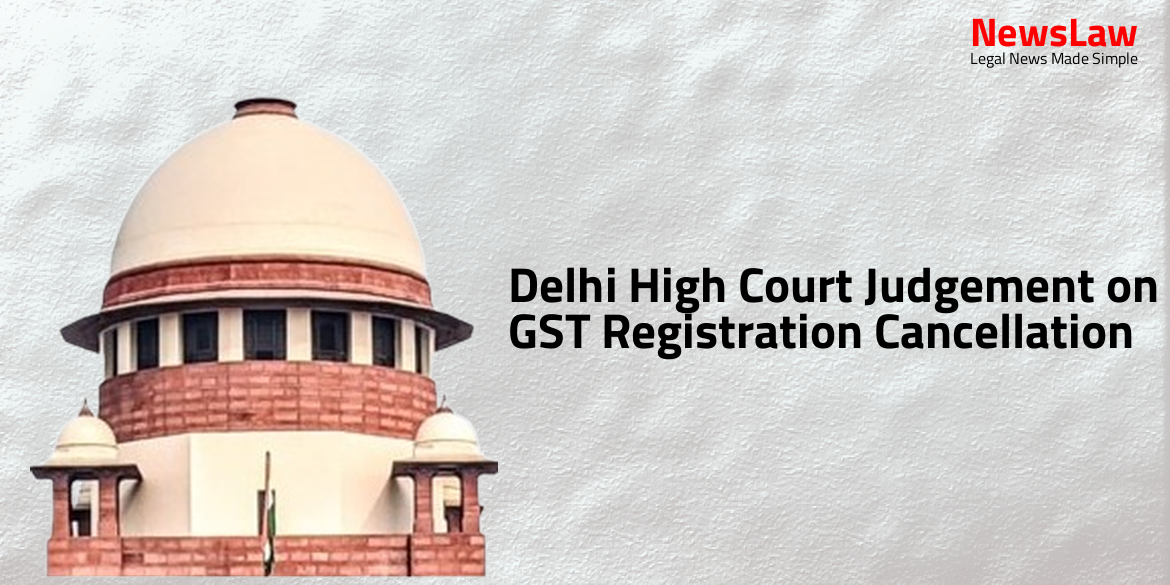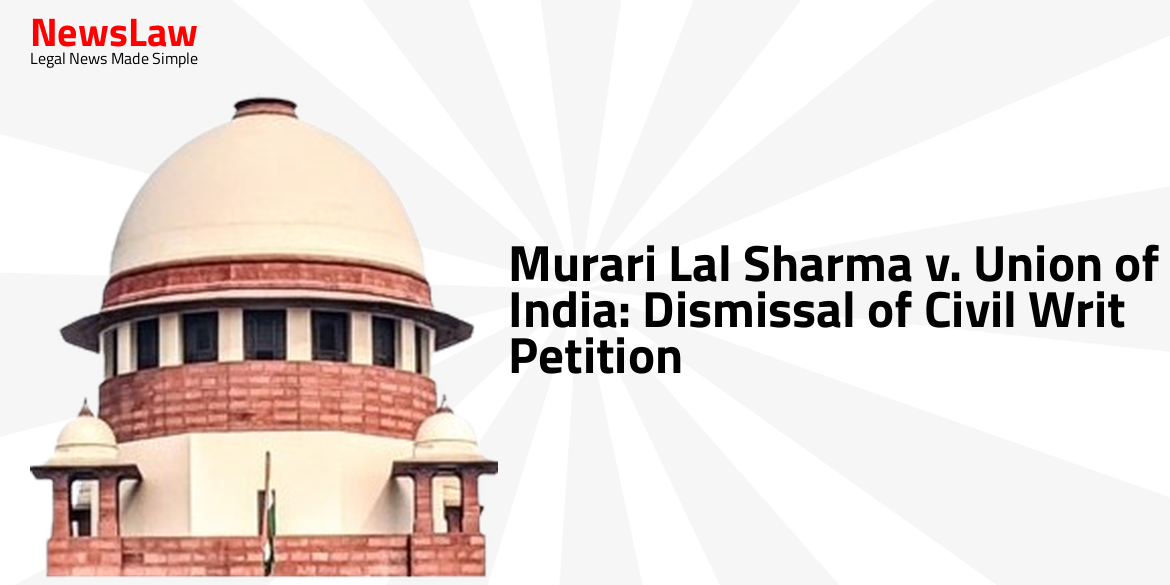In a recent ruling by the Delhi High Court, a case regarding virtual cross-examination has been resolved, impacting the way legal proceedings are conducted. The judgment sets a new standard for utilizing technology in court hearings, benefiting both the respondent and the petitioner involved in the case.
Arguments
- Petitioner, a resident of Dubai, seeks permission for virtual cross-examination in Complaint Cases filed by him against Respondent in Delhi
- Relies on Digital NI Act Courts guidelines for virtual proceedings and cites previous cases for similar relief granted by the Court
- No valid reason to compel Petitioner to attend proceedings in person when virtual mode is feasible and Respondent faces no difficulty
- Trial Court accepted Respondent’s withdrawal of consent for virtual cross-examination
- Petitioner’s counsel argues for virtual appearance citing residency abroad
- Cites case laws supporting virtual proceedings and relaxation of rules
- Respondent’s counsel argues for in-person appearance of Petitioner as per Cr.P.C. Section 256
- Claims Petitioner’s attendance necessary, alleging mala fide intent behind Complaint Cases
- The respondent’s legal representative argues that the petitioner will not face any inconvenience through the proposed manner of handling the case.
- It is suggested that the complainant is engaging in an extravagant legal process, evident from their absence in court since 2018.
- The cross-examination of the petitioner is expected to be completed in 2-3 appearances, which can be scheduled based on the petitioner’s preferred date.
- The respondent’s senior counsel points out the challenge of effectively presenting a large number of documents to confront the petitioner, citing the limitations of virtual communication.
Analysis
- The Covid-19 pandemic has necessitated a shift towards digitalization in court hearings.
- The court has established hybrid modes of hearing, including virtual court proceedings in District Courts.
- Summary procedure is generally followed, except when specified otherwise under the Act.
- Guidelines have been set for recording evidence of parties/witnesses through video conferencing (VC).
- Recommendation to use modern technology not just for paperless courts but also to reduce overcrowding.
- Court did not err in allowing the petitioner to appear virtually for compliance with procedures.
- The High Court of Delhi has rules for video conferencing which provide detailed procedures for evidence recording through VC.
- The presence of the petitioner seems to be sought to satisfy parties’ ego, which is not permissible.
- Consent given for virtual proceedings should not be withdrawn post the pandemic restrictions being lifted.
- Establishment of Digital NI Act Courts and recommendation to consider cases for online conclusion without physical presence.
- The complainant/petitioner is appropriately represented by counsel before the Trial Court.
- Rule 18 of the Video Conferencing Rules allows the High Court to relax or dispense with specific rules if strict application causes undue hardship, injustice, or unwarranted burden.
- The purpose of Rule 18 is to provide a mechanism to safeguard against adverse consequences of inflexible rule application.
- In cases related to Section 138 of the NI Act, which are civil in nature, the Court can exercise its power under Rule 18 to ensure just and equitable treatment.
- The Court, in specific cases, did not allow the accused to withdraw consent for virtual recording of evidence, citing its authority under Rule 18 to relax requirements for the accused’s consent.
- Rule 5.3.11 of the Video Conferencing Rules mandates the consent of the accused for witness examination via video conference, but this requirement can be relaxed under Rule 18 by the High Court.
- The procedure for obtaining and recording consent for virtual mode of evidence should be followed strictly.
- Once consent is given by the respondent, it should not be allowed to be withdrawn.
- The Trial Court erred in allowing the respondent to withdraw consent for virtual evidence recording.
Decision
- Petitions are disposed of in the above terms
- The orders are set aside
- Pending applications are disposed of
- Further examination of the petitioner/complainant shall be conducted via video conference following court guidelines
- Physical presence of petitioner/complainant may be required during cross-examination if deemed necessary by the Trial Court
Case Title: AMIT CHOUDHRY Vs. KAVANDEEP SINGH SAMPURAN (2024:DHC:3690)
Case Number: CRL.M.C.-2358/2022



